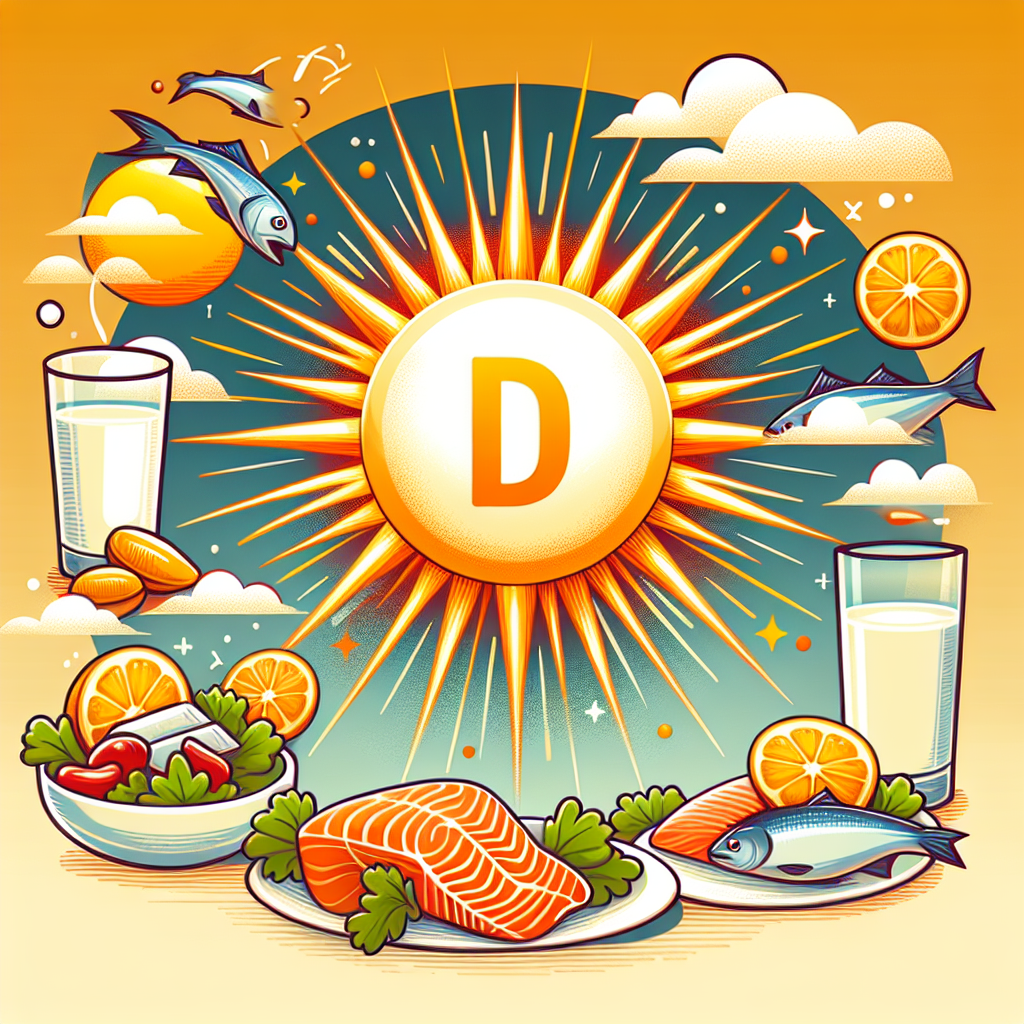The Outlier among Fat-Soluble Vitamins
The article entitled “The Outlier among Fat-soluble vitamins” meticulously examines the often misunderstood area of fat-soluble vitamins, all the while debunking common myths and misconceptions associated with fat and health. The discourse delves into the peculiar characteristics of certain vitamins and the nuanced dynamics of essential and storage body fat. With an analytically rigorous approach, the article addresses various intriguing questions, highlights the visual aspects of body fat, and probes into the significance of body fat percentages. Furthermore, this discussion also exposed the societal preconceptions linked to body fat, convincingly debunked by employing scientific facts and study-based evidence to illuminate the truth about body fat and its various nuances.

Understanding Fat-soluble Vitamins
Defining Fat Soluble Vitamins
Fat-soluble vitamins are a family of nutrients that, as stated in their name, are soluble in fat. This means they can be stored in the body’s fat tissues and the liver. This store can then be tapped into by the body when needed.
Components of Fat Soluble Vitamins: A, D, E, and K
There are four components that make up fat-soluble vitamins: Vitamins A, D, E, and K. Each of these vitamins plays a vital role in maintaining optimal health and well-being.
The Outlier among Fat-soluble Vitamins
The Nature of the Outlier
Each of the fat-soluble vitamins has distinct characteristics that imbue them with unique functionalities. However, among the four, Vitamin D can be considered an outlier. This is primarily due to its ability to be synthesized by the human body upon exposure to sunlight.
Distinguishing Characteristics
Vitamin D differs from Vitamins A, E, and K in that it performs functions akin to hormones in the body. It plays a pivotal role in bone health, immune function, and maintaining the balance of critical minerals in the body.
The Role of Fat-soluble Vitamins in the Body
The Importance of Vitamin A
Vitamin A is pertinent to eye health. It plays a key role in maintaining the health of the retina, which is vital for vision. Additionally, it also supports immune system functionalities and cell growth.
The Importance of Vitamin D
As previously mentioned, Vitamin D is critical for maintaining bone health. It aids in the absorption of calcium, a mineral integral to normal bone development and maintenance.
The Importance of Vitamin E
Vitamin E possesses strong antioxidant properties. It aids in cell protection against damage caused by free radicals—these are harmful compounds produced when the body breaks down food or is exposed to tobacco smoke and radiation.
The Importance of Vitamin K
Vitamin K is primarily involved in the coagulation process or blood clotting. It facilitates wound healing and prevents excessive bleeding. It also plays a role in bone health.

The Impact of having Deficiencies or Excess Fat-soluble Vitamins
The Risks Involved
Being fat-soluble, these vitamins can be stored in the body for long periods. However, this storage capability implies that an excess of these vitamins can potentially lead to toxicity. Conversely, deficiencies of these vitamins can result in a range of health problems.
Common Health Problems due to Deficiencies or Excess of these vitamins
Common health problems can arise due to either deficiencies or excesses of these vitamins. For instance, a deficiency in Vitamin A can result in night blindness or skin issues, while an excess can potentially lead to nausea or hair loss. Similarly, Vitamin D deficiency can lead to bone diseases like rickets or osteomalacia, and excess Vitamin D can cause fatigue or kidney damage.
Fat-soluble Vitamins and Body Fat
Interaction of Fat-soluble Vitamins with Body Fat
As these vitamins are soluble in fat, body fat plays a significant role in their storage and transportation. An individual’s body fat percentage can impact the levels of these vitamins in the body.
Effect on Body Fat Percentage
Excess fat-soluble vitamins can increase body fat percentages due to the body’s tendency to store these nutrients. Therefore, monitoring the intake of these vitamins is vital for individuals aiming to control their weight or body fat content.
Fat Soluble Vitamins and Dietary Fats
How Fats Help in Absorption of These Vitamins
Dietary fats serve as carriers for fat-soluble vitamins. They facilitate the absorption of these vitamins in the small intestine and aid their transportation within the body.
Understanding Sources of These Dietary Fats
Reliable sources of dietary fat that aid in the absorption of fat-soluble vitamins include avocados, nuts, seeds, and fatty fish. Including these in one’s diet can ensure adequate intake of these vitamins.
Controversies Surrounding Fat-soluble Vitamins
Debates and Myths
Common myths surround the consumption and supplementation of fat-soluble vitamins, from their effects on weight loss to the benefits and risks of their excess consumption.
Evidence-based Responses to These Controversies
Evidence-based responses derived from scientific research are crucial to debunking misconceptions surrounding these vitamins. It is essential to rely on credible sources of information for understanding these nutrients better.
Supplementation of Fat-soluble Vitamins
Who Needs Supplementation
Individuals with specific dietary restrictions, chronic illnesses or nutrient malabsorption conditions may require supplementation for these vitamins. However, it is always recommended to discuss with a healthcare professional before beginning any supplementation.
Safety and Risks of Supplementation
While supplementation can be beneficial in certain circumstances, it does not come without risks. Over-supplementation of fat-soluble vitamins can lead to toxicity. Therefore, it is crucial to adhere to the recommended dietary allowance to avoid any adverse health impacts.
Fat-soluble Vitamins and Physical Fitness
Interaction with Physical Activities
Fat-soluble vitamins, particularly Vitamin D, can influence one’s fitness levels and physical performance. These vitamins play a significant role in muscle function and recovery.
The Role of These Vitamins in Muscle Growth and Fat Loss
Vitamins like D and A contribute to muscle growth while Vitamins E and K help in muscle regeneration and repair. Additionally, Vitamin D is also known to stimulate fat loss.
Choosing a Diet Rich in Fat-soluble Vitamins
The Healthiest Fat Sources for a Balanced Diet
The healthiest fats, such as monounsaturated and polyunsaturated fats, are beneficial for enhancing the absorption of fat-soluble vitamins. Foods such as nuts, seeds, avocados, olives, and fatty fish are rich sources of these fats.
How to Incorporate These Vitamins in Everyday Meals
Implementing these vitamins into everyday meals can be achieved by consuming a balanced diet consisting of a variety of foods. Incorporating various sources of healthy fats, along with a range of fruits, vegetables, and lean protein can ensure a well-rounded intake of these crucial vitamins.


Pingback: The Misfit Among Fat-Soluble Vitamins - Lose Weight With Absolute Minimal Diet - Your All In One Guide to Weight Loss & Nutrition